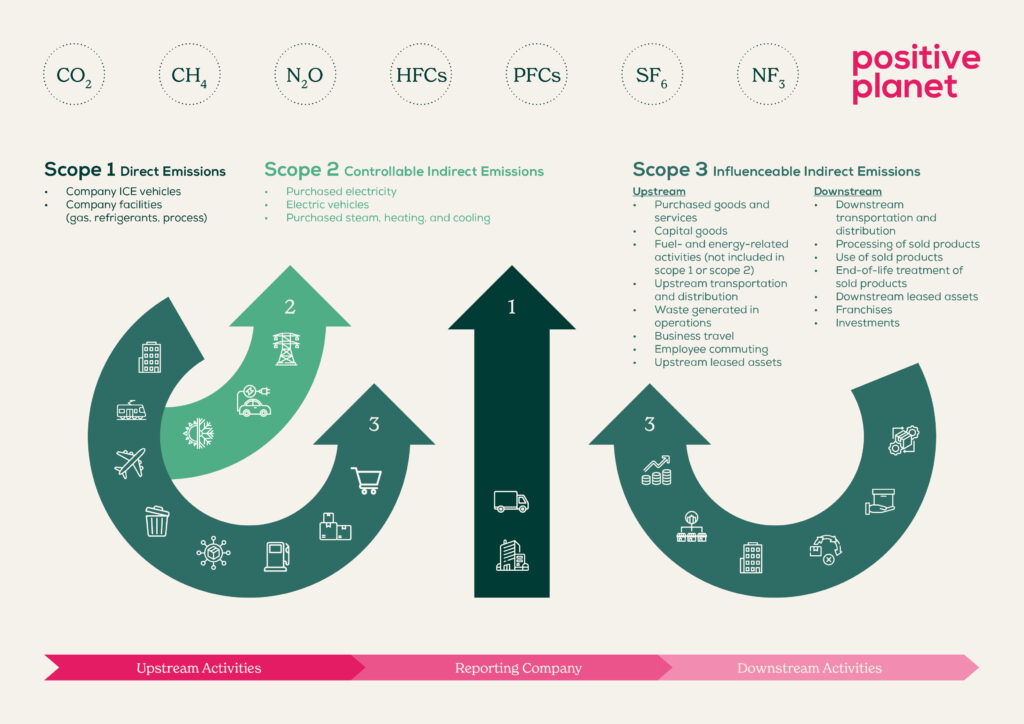To take effective action, we must first measure what matters. That’s where the Greenhouse Gas (GHG) Protocol comes in. Recognised as the global standard for carbon accounting, the GHG Protocol categorises emissions into three distinct ‘scopes,’ including Scope 3 emissions, which account for indirect emissions across the value chain. By understanding and addressing all three scopes, organisations can take a data-driven approach to reducing their environmental impact and building a more sustainable future.
Breaking Down the Scopes
Scope 1: Direct emissions from sources owned or controlled by a company—such as factory smokestacks, company-owned vehicle fleets, and gas boilers.
Scope 2: Indirect emissions from purchased electricity, heat, or steam. If your business draws power from the grid, these emissions are part of your carbon footprint.
Scope 3: The most complex but crucial category, covering all other indirect emissions across the value chain. This includes emissions from suppliers, product transportation, employee commuting, and even how customers use your products.

Learn more about our measurement process here.
The Scope 3 Challenge — And Opportunity
Managing scope 1 and 2 emissions is relatively straightforward. Scope 3, however, presents a different challenge. These emissions occur outside a company’s direct control, embedded within supplier networks, logistics operations, and consumer behaviours. Yet, for most businesses, scope 3 emissions account for the largest share of their total carbon footprint.
Across the UK, companies are recognising the growing importance of addressing scope 3 emissions. Investors, customers, and regulators alike are demanding more transparency and action. But beyond compliance, businesses that take proactive steps now are positioning themselves as leaders in the transition to a sustainable economy.
From Challenge to Competitive Advantage
Tackling scope 3 emissions isn’t just about meeting regulatory requirements—it’s about reshaping the way businesses operate. It requires close collaboration with suppliers and partners to drive emissions reductions at every stage of the value chain. Businesses must also embrace innovative technologies that enable precise tracking, reporting, and mitigation of their carbon output. At the same time, adopting circular economy principles—such as waste minimisation and resource efficiency—can further enhance sustainability efforts.
Yes, addressing scope 3 emissions is a complex task, but it is also an opportunity. Businesses that take action today are not only mitigating climate risks but also enhancing their brand reputation, attracting eco-conscious consumers, and future-proofing their operations.
Leading the Way to a Low-Carbon Future
At Positive Planet, we help businesses navigate the complexities of carbon reporting and reduction strategies. Our expertise in sustainability consulting empowers organisations to take meaningful steps towards reducing their environmental impact while driving business success.
The time to act is now. By taking responsibility for their full carbon footprint—including scope 3 emissions—businesses can lead the charge towards a more sustainable and resilient future.
Ready to take the next step? Get in touch with our team to start your journey towards measurable, impactful carbon reduction.
